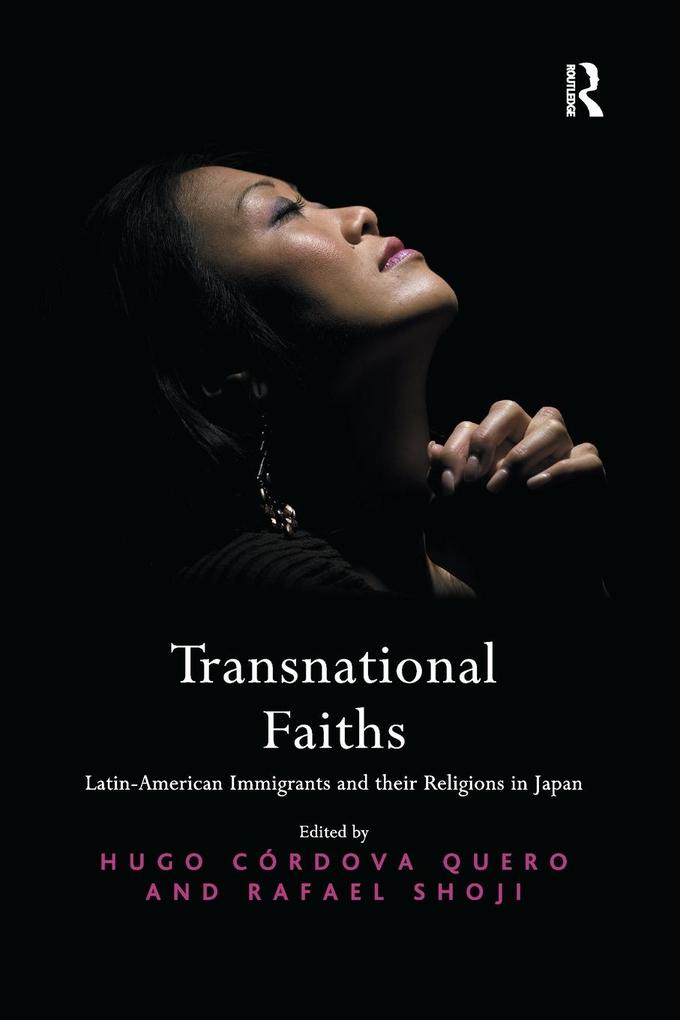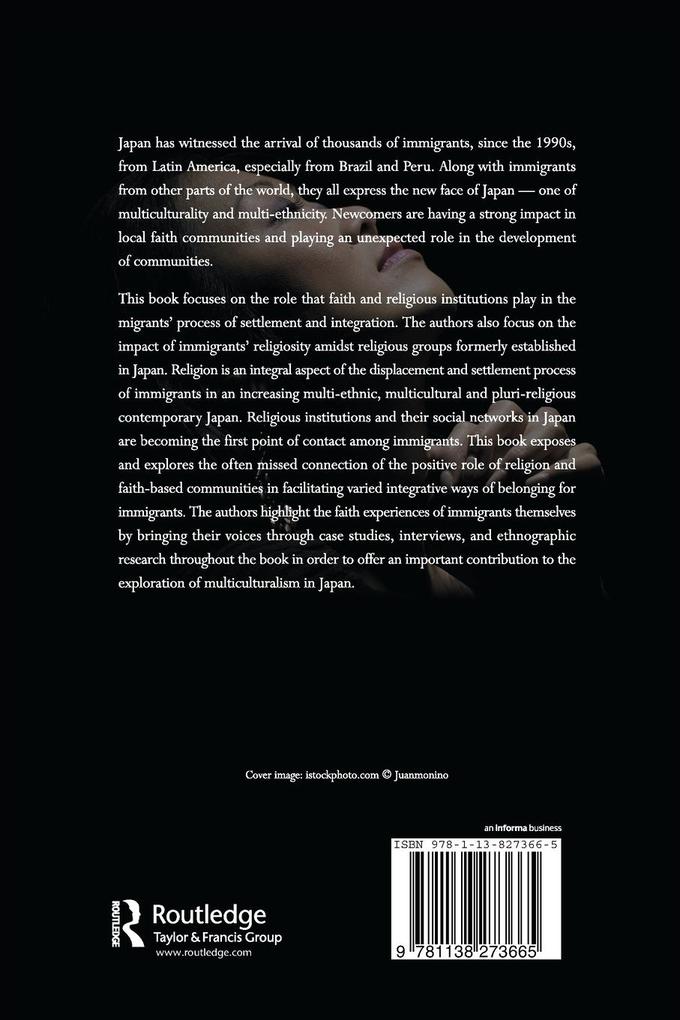
Zustellung: Di, 03.06. - Fr, 06.06.
Versand in 6 Tagen
VersandkostenfreiBestellen & in Filiale abholen:
Japan has witnessed the arrival of thousands of immigrants, since the 1990s, from Latin America, especially from Brazil and Peru. This book exposes and explores the often missed connection of the positive role of religion and faith-based communities in facilitating varied integrative ways of belonging for immigrants. The authors highlight the faith experiences of immigrants themselves by bringing their voices through case studies, interviews, and ethnographic research throughout the book to offer an important contribution to the exploration of multiculturalism in Japan.
Inhaltsverzeichnis
Contents: Foreword; Introduction: on transnational faiths and their faithfuls, Hugo Córdova Quero and Rafael Shoji; The making of 'Brazilian Japanese' Pentecostalism: immigration as a main factor for religious conversion, Rafael Shoji; 'Bestowing the light of the Gospel in Japan': the formation of an ethnic church in the Dekassegui community, Masanobu Yamada; The potentiality of Brazilian immigrants' religious communities as social capital: the case of Christian churches in Toyohashi under an economic depression, So Hoshino; Diversity and education: Brazilian children and religious practices in everyday life at Japanese public schools, Nilta Dias; Citizenship of God: female sex workers and the Roman Catholic Church's advocacy for human rights, Marcela Inés Méndez Vázquez; Transnational believers: understanding the religious experiences of Peruvian immigrants in Japan, Olmes Milani; The activities of Soka Gakkai and Sekai KyÅ'seikyÅ? among Japanese Brazilians in Japan, Regina Yoshie Matsue; Becoming Brazilian in Japan: umbanda and ethnocultural identity in transnational times, Ushi Arakaki; Transcendental communications: the reinterpretation of the Brazilian Spiritist continuum in Japan, Rafael Shoji and Hugo Córdova Quero; Bibliography; Index.
Produktdetails
Erscheinungsdatum
11. Oktober 2016
Sprache
englisch
Seitenanzahl
284
Autor/Autorin
Rafael Shoji, Hugo Córdova Quero
Verlag/Hersteller
Produktart
kartoniert
Gewicht
436 g
Größe (L/B/H)
234/156/15 mm
ISBN
9781138273665
Entdecken Sie mehr
Bewertungen
0 Bewertungen
Es wurden noch keine Bewertungen abgegeben. Schreiben Sie die erste Bewertung zu "Transnational Faiths" und helfen Sie damit anderen bei der Kaufentscheidung.











